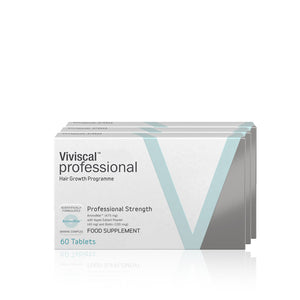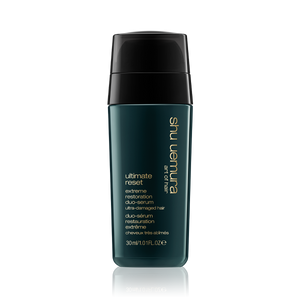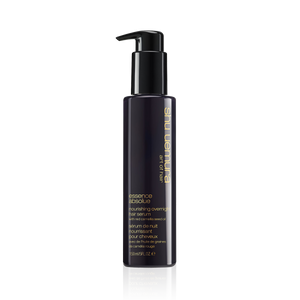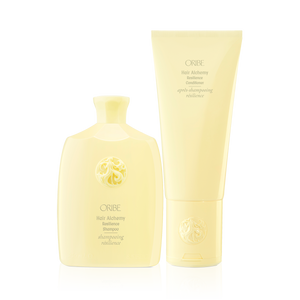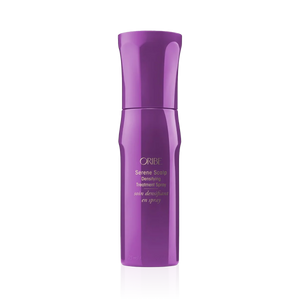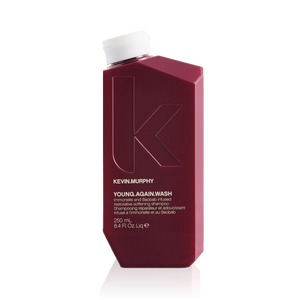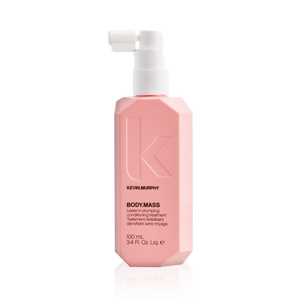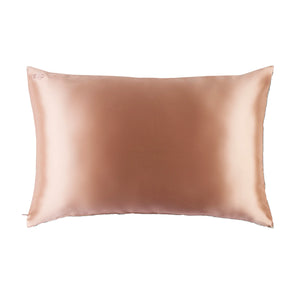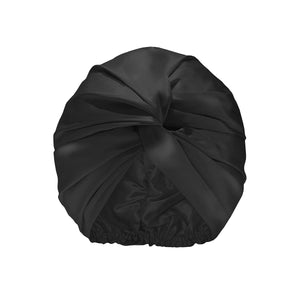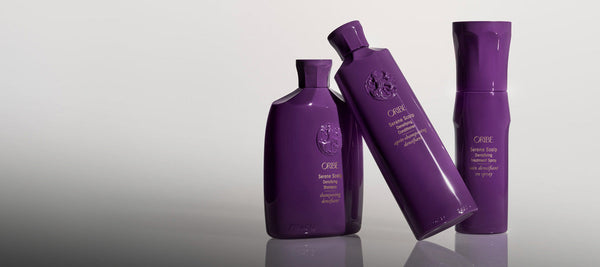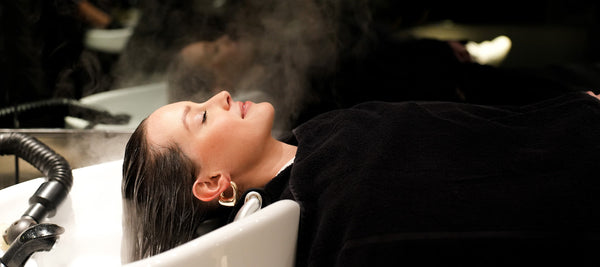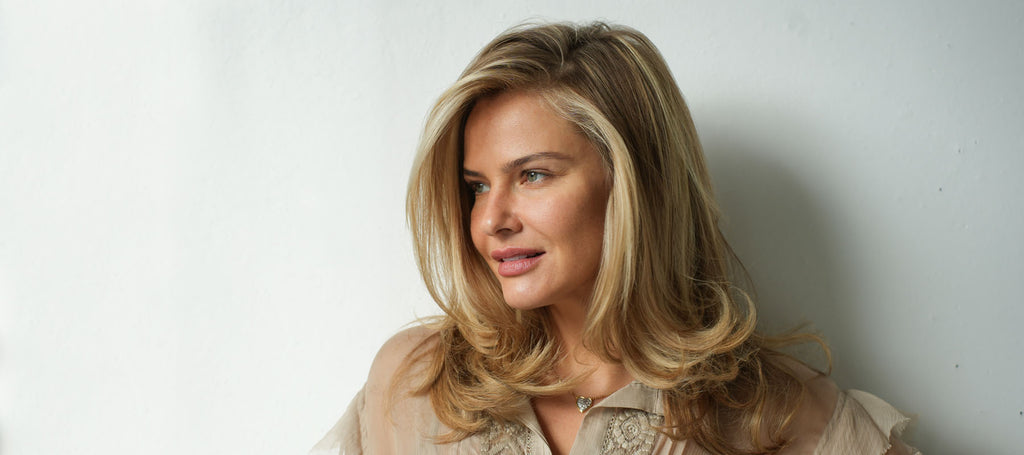Menopause and Your Hair Expert Advice from Paul Edmonds London
The journey through perimenopause and menopause is different for every woman, but one thing many experience in common, is unexpected changes to their hair. At Paul Edmonds London, we understand that thinning, dryness, lack of moisture, loss of colour, and altered texture can be distressing. Our expert stylists are here to help you understand why these changes happen and how to treat them, both in the salon and at home.
"Hair is so personal when it changes, it can affect your confidence. Our role is to bring your hair back to life in a way that suits your individuality," says Paul Edmonds.
Understanding the Hormonal Shift
Menopause is a natural biological process triggered by a drop in reproductive hormones. During perimenopause, oestrogen and progesterone levels begin to fluctuate, often starting in your 40s. Eventually, menopause is reached typically between 45 and 55, when these hormones decline significantly, and periods stop for good.
These hormonal shifts can influence everything from sleep quality to skin condition, but one of the most visible effects is on your hair. Oestrogen helps keep hair in its growth phase. With less of it in your system, hair grows more slowly, sheds more easily, and loses volume and shine.
However, it's not just hair that undergoes these transformations. Skin is equally affected. As oestrogen levels drop, skin becomes thinner and dryer, losing its natural elasticity. This is due in part to reduced production of collagen and hyaluronic acid, two compounds critical to maintaining plumpness, moisture, and resilience in the skin. Because hair follicles are embedded in the scalp an extension of the skin, these changes directly impact hair health as well.
"We often see women come in during this phase wondering why their once thick, glossy hair now feels finer and looks dull. The answer nearly always begins with hormones," Paul adds. "But skin health and scalp health go hand in hand with hair vitality so looking after both is key."
While this blog is focused on women's experiences with perimenopause and menopause, it’s worth noting that men can also experience hormonal changes as they age. A gradual decline in testosterone commonly referred to as andropause, can impact hair in similar ways. The hair growth cycle may slow, resulting in thinning hair, particularly at the temples and crown. Male-pattern baldness, driven by genetic sensitivity to dihydrotestosterone (DHT), becomes more pronounced with age. Though the causes and patterns differ, both men and women can experience a loss in density and texture due to shifting hormones.
Is Everyone Affected the Same Way?

Not necessarily. Genetics play a strong role in determining how menopause will impact your hair. If thinning or hair loss runs in your family, you may be more susceptible. However, even women with no family history can experience noticeable changes due to hormonal imbalances, nutritional deficiencies, or stress. The science is still developing, but evidence increasingly shows that menopausal hair loss is a complex interaction of internal and external factors.
Hair thinning isn't guaranteed for everyone, but it's common enough to be a shared concern. This is why personalised haircare and consultations are essential.
The Signs to Look For
The changes to your hair can be subtle at first. You may start to notice your parting appearing wider, or your crown looking sparse. Hair may feel dryer or rougher, especially at the ends. This happens because your scalp produces less oil, and changes to skin and follicle health affect your hair’s texture. Follicles can shrink over time, producing finer, weaker strands.
Hair can also grow in different directions, particularly from the crown downward, disrupting your usual styling patterns. Loss of melanin may cause new growth to appear dull, cooler-toned, or grey hair that lacks the warmth and vibrancy it once had.
The scalp can also become more sensitive, this can be evident from a light tingling/mild heat sensation through to something more of an inflammatory response in severe cases where the scalp becomes inflamed or shows excessive dry dandruff, so it is important to discuss solutions and alternatives when discussing technical service applications like colour.
"One client said she couldn’t recognise herself anymore because of how her hair changed post-menopause. Our aim is to help restore a sense of identity through hair that feels like 'you' again," says Paul.
What Our Stylists Recommend
At Paul Edmonds London, our approach to hair affected by menopause starts with understanding your body. We encourage clients to consult their GP and have their hormone levels checked. Often, adding more protein to your diet and ensuring your vitamin intake supports hair health can make a real difference.
Viviscal Tablets
Join the AminoMar-C, a revolution in hair growth
In the salon, we often recommend adjusting the haircut to create the illusion of fullness. Taking the front slightly shorter can boost body and make styling easier. Surprisingly to some, colour can also be a remedy not just for covering greys, but for restoring vibrancy and improving condition. Our colour ranges include products rich in conditioning agents that smooth the cuticle, reduce dryness, and improve light reflection, but as mentioned before changes in hormones can affect the way the scalp reacts to colour, there are many options that are designed for sensitivity that are ideal, and your stylist should be able to cover what alternatives there are should this arise.
"We work with colour not just to change tone, but to heal the hair. The right professional colour can make menopausal hair feel plumper, re-vitalised and luxurious again," Paul explains.
Smoothing treatments are another effective solution. Unlike harsh straightening methods, our preferred treatments reduce frizz and reinforce hair structure without removing volume. This is key for menopausal clients who are managing weakened, more brittle strands.
Hero Products We Trust
When it comes to at-home care, we turn to our most trusted product ranges: Shu Uemura, Oribe, and Kevin Murphy, all available at www.pauledmonds.com.
From Shu Uemura, the Ultimate Reset Shampoo and Conditioner are exceptional for restoring strength to damaged hair, containing Japanese rice extracts it will fill in the bonds lost in the hair without overloading the hair and weighing it down, while Shu Uemura Essence Absolue Overnight Serum nourishes deeply and tames frizz as you sleep. These formulas are packed with reparative ingredients and red camellia oil, which help rebuild the structure of the hair fibre.
Ultimate Reset Duo Serum
Formulated with Japanese rice extract this will strengthen hair and provide elasticity
Essence Absolu Overnight Serum
A must have overnight serum packed with essential oils recovering hair from the inside out
Oribe’s Hair Alchemy Resilience Shampoo builds strength and body in fragile strands, and the Serene Scalp Thickening Treatment Spray helps create a fuller-looking hairline over time. Their blend of chia seed, bamboo leaf, and plant-based collagen ensures hair is reinforced from root to tip.
Alchemy Resilience Shampoo & Conditioner Bundle
Delivering moisture and elasticity to fragile hair
Serene Scalp Thickening Treatment Spray
Packed with peptides and plant based proteins with phytoceramides, to boost thicker growth
Kevin Murphy offers the transformative YOUNG.AGAIN range that will make the hair feel youthful and rejuvenated, the Treatment Oil in particular is perfect for leave in on towel dry or pre blow dry, it will rejuvenate dry, ageing hair, while the BODY.MASS Leave-In Treatment adds volume and enhances thickness from root to tip. Rich in antioxidants and growth-promoting peptides, these products are specifically designed to combat the visible signs of hormonal ageing in hair.
Kevin Murphy Young.Again
Infused with immortelle extract to counteract oxidation and aging process
Body.Mass Leave-in Treatment
Designed for fine limp thinning hair, improves thickness and heat protection
Ingredients That Matter
When choosing haircare for menopausal hair, ingredients are crucial. Look for formulas with protein (like keratin and hydrolysed wheat protein), fatty acids, peptides, and nourishing natural oils, these help strengthen the hair shaft, increase elasticity, and restore moisture balance.
Avoid sulphates and alcohol-heavy products, which can strip already dry hair. Focus instead on replenishing, smoothing, and protecting with every wash.
Smart Extras for Nighttime and Beyond
Some small changes can also make a big impact. Sleeping on silk pillowcases helps reduce friction, preventing breakage and maintaining your hair’s moisture balance.
Slip Silk Pillowcases
100% Mulberry Silk pillows in various colours
For longer hair, turbans can protect your strands overnight and for those experiencing hot flushes, they’re a practical way to keep hair off the neck while staying comfortable.
Slip Hair Turban
Reduce friction, retain moisture and keep your curls
Paul notes, "Our clients often find that simple adjustments, changing their pillowcase or adding a silk turban really enhance the benefits of their salon treatments. It’s all about holistic care."
Book Your Consultation Today
Menopausal hair changes aren’t something you have to accept without support. At Paul Edmonds London, our stylists are not just experts in hair they’re experts in you. Every consultation starts with a conversation and ends with a personalised treatment plan that fits your needs.
Visit www.pauledmonds.com to book your consultation and discover the difference expert care can make. While you’re there, explore our curated product range to keep your hair feeling and looking its best whatever stage of life you’re in.

